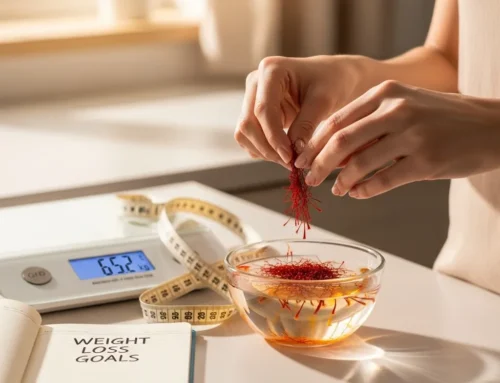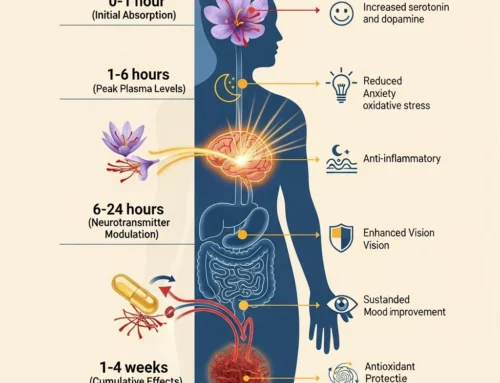 Is Saffron Good for Diabetes?
Is Saffron Good for Diabetes?
Saffron for Diabetes: Saffron, the most expensive spice in the world, is not only known for its unique aroma and taste but also for its medicinal properties. People suffering from blood sugar disorders or diabetes often face specific concerns regarding their diet.
One of the most common questions in this context is whether saffron contains high sugar levels and if consuming it can be beneficial or harmful for diabetic patients, especially those with type 1 or type 2 diabetes. Research indicates that saffron can be beneficial for diabetes and help improve the overall health of individuals with diabetes. In this article, we will delve deeper into saffron for diabetes. Stay with us.
Does Saffron Contain Sugar?
Many people believe that saffron has a high sugar content and, therefore, should be avoided, especially by those with diabetes. However, this belief is incorrect. Not only does saffron not have a high sugar content, but it is also recognized as a beneficial spice in the diet of diabetic individuals.
Saffron contains compounds that can help regulate blood sugar levels. This spice is rich in antioxidants and nutrients that improve insulin sensitivity and reduce inflammation. Some studies have shown that saffron for diabetes can be beneficial in lowering blood sugar levels and improving metabolic functions in diabetic patients.
Moreover, saffron, known for its antidepressant and calming properties (as discussed in our article on the effect of saffron on the nervous system), can aid in stress management and improve the quality of life for those dealing with diabetes. Therefore, including saffron in your diet can not only be safe but also act as a natural supplement for controlling diabetes.
What Are the Benefits of Saffron for Diabetes?
Saffron, this valuable and expensive spice, helps improve the condition of individuals with diabetes due to its unique benefits. There are several reasons why one of the properties of saffron can contribute to blood sugar control and the management of this condition:
Blood Sugar Control with Manganese
Saffron contains significant amounts of manganese, which is one of the key minerals involved in regulating blood sugar. Nutrition experts point out that manganese, along with other nutrients like potassium, vitamin C, iron, and vitamin B6, helps reduce blood sugar and prevent diabetes. By properly regulating blood sugar levels, saffron can act as a natural protector against diabetes.
Anti-Diabetic Effects of Flavonoids
Saffron is also rich in beneficial compounds like flavonoids and terpenes. These compounds inhibit the enzyme Alpha-glucosidase, which plays a role in the digestion of carbohydrates, potentially helping with diabetes. This process reduces sugar absorption in the body and improves blood sugar control.
Reducing Stress and Increasing Calmness
Stress is one of the factors that significantly affects the onset of diabetes and blood sugar control. Research shows that individuals who experience more anxiety and stress are at a higher risk of developing diabetes. Saffron is known in traditional medicine as a calming agent, which can help reduce stress and anxiety. By maintaining calmness and managing stress, diabetic individuals can improve their blood sugar levels.
In general, saffron is not only known as a delicious spice but also as a valuable medicinal supplement in the treatment and management of diabetes. Including saffron in your daily diet can help improve the quality of life for individuals with diabetes and help control blood sugar more effectively.
How to Use Saffron to Improve Diabetes
Saffron for diabetes is effective and easily accessible, as saffron can be purchased with ease. The key point in this regard is incorporating saffron into your daily diet and establishing a consistent habit.
Instead of consuming saffron sporadically and suddenly, it is better to use this valuable spice continuously and steadily. As the famous story of “The Tortoise and the Hare” shows, slow and steady progress is usually more sustainable.
Adding Saffron to Meals
Saffron can be easily added to various dishes and stews. For example, you can add ground saffron to a plate of rice or stew. This not only enhances the flavor and aroma of the food but also brings the medicinal benefits of saffron to your meals.
Preparing Saffron Tea
Another effective method for benefiting from saffron’s properties is by preparing saffron tea. Simply add saffron to hot water or hot milk and let it steep for a few minutes. For better results, it is recommended to drink saffron tea half an hour before lunch and dinner. This can help regulate blood sugar levels while showcasing saffron’s weight-loss effects at this time.
Using Saffron in Milk
Adding ground saffron to a glass of milk before bed is also a great option. This combination can help you relax and act as a healthy and beneficial drink before sleep.
Ultimately, by incorporating saffron into your daily diet, you can help improve your diabetes and better control your blood sugar levels. Remember, saffron for diabetes is effective when consumed regularly and consistently.
What is the Recommended Amount of Saffron for Diabetes?
If you decide to include saffron in your diet, the first thing to consider is the fair price of saffron. To start, it is better to begin consuming saffron in small amounts. For example, you can start with 0.1 grams per day. This amount allows you to gradually get familiar with the benefits of saffron and monitor any possible side effects.
After several days of regular consumption, measure your blood sugar levels to see if there has been any change. If no significant change is observed after a few days, you can gradually increase the amount of saffron you consume. However, this increase should be gradual and done with caution so your body can respond positively to these changes.
Finally, by following these guidelines and adopting a gradual approach to saffron consumption, you can harness the valuable benefits of this spice and improve your diabetes condition.
Final Note
In conclusion, saffron for diabetes can be beneficial and help improve the health of diabetic patients. Despite misconceptions about the sugar content in saffron, research shows that this spice not only doesn’t increase blood sugar levels but can also be effective in controlling blood sugar due to valuable compounds such as manganese and flavonoids.
To benefit from these properties, it is recommended to add saffron gradually and in small amounts to your diet. Starting with 0.1 grams per day and gradually increasing it allows you to monitor changes in your blood sugar levels and manage any potential side effects.
Additionally, if you have specific health conditions, it is important to consult with a doctor before adding saffron to your diet. A doctor can provide guidance based on your condition and prevent potential issues.







Get Social